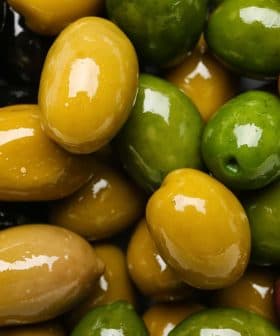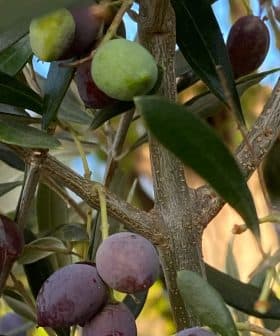Study Demonstrates Role of Phenols in Early Pregnancy

Oleuropein, a phenolic compound in olive oil, has antioxidant, anti-inflammatory, and neuroprotective effects, with a new study examining its impact on oxidative stress in human trophoblasts during pregnancy. In vitro experiments showed that oleuropein reduced oxidative damage, improved antioxidant functioning, and lowered iNOS levels, potentially offering benefits for embryo implantation and development without adverse effects.
Oleuropein, a phenolic compound found in olive oil, fruits and leaves, is well known for its antioxidant, anti-inflammatory and neuroprotective effects.
While numerous studies have demonstrated the benefits of olive oil-rich diets during pregnancy, there have been no human studies on the role of olive phenols or polyphenols in embryo implantation and development.
A new study published in a special issue of the journal Antioxidants has sought to address this issue by examining the impact of oleuropein on oxidative stress on human trophoblasts: cells formed during the first stage of pregnancy that provide nutrients to the embryo.
See Also:Consuming extra virgin olive oil Results in More Polyphenols in Breast Milk, Study FindsIn vitro experiments performed by the research team found that oleuropein significantly reduced oxidative damage and restored antioxidant functioning in trophoblasts subjected to hydrogen peroxide, which was used to model oxidative stress.
Olive oil polyphenols
Polyphenols are a group of natural compounds commonly found in plant-based foods and beverages, including olive oil. They have potent antioxidant properties and are believed to have health benefits, such as reducing the risk of certain chronic diseases. Olive oil is particularly rich in hydroxytyrosol, tyrosol, and oleuropein, which are types of polyphenols.
Not only did it improve antioxidant status and prevent protein and lipid damage, but oleuropein also reduced iNOS levels, excessive production of which has been linked to improper embryo transport and ectopic pregnancy.
Reactive oxygen species, varieties of free radicals, play a vital role in normal pregnancy. Still, an excess is known to cause oxidative stress, leading to serious complications such as gestational diabetes, preeclampsia, or even fetal loss.
The potential for antioxidants to prevent and treat such disorders is receiving increasing attention. However, very few antioxidant components have so far shown significant effects on pregnancy disorders.
Most common antioxidant supplements, such as vitamin C and vitamin E, have not only been found to be ineffective in reducing the risk of complications but have even been associated with an increase in stillbirths.
The researchers noted that existing studies of olive oil supplementation in the pre-conception period and during pregnancy have demonstrated that a supplementation period could improve embryo quality parameters in in vitro human embryo development.
They also emphasized that no indications of adverse effects in the trophoblast cells were observed from the introduction of oleuropein, thus paving the way for further research.










